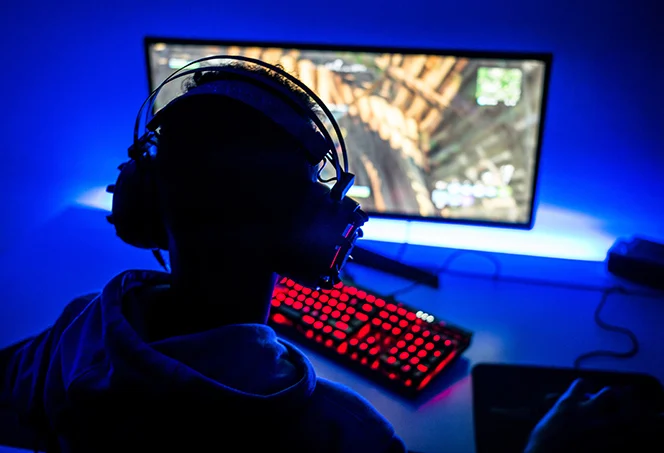Buying a gaming PC is a big investment, and with so many options on the market, it can be difficult to choose the right one. A gaming PC isn’t just about how it looks; it’s also about how powerful, fast, and durable it is. To get the best gaming experience, there are many things to consider, including the games you play, your budget, and how you can future-proof your system. These tips will help you choose the best gaming PC for optimal performance.
1. Set a Realistic Budget
The next step is to create a budget. Once you know what you need for your gaming, you can stick to it. Gaming PCs can cost anywhere from a few hundred dollars to a few thousand dollars, depending on the brand and internals. You need to find a balance between what you need and what you can afford. Keep in mind that you don’t have to spend a lot of money to build a good gaming PC, even if you want the most powerful specs. Spend your money wisely and prioritize the components that have the biggest impact on performance, such as the GPU and CPU.
2. Invest in a Powerful Graphics Card (GPU)
The GPU is probably the most important component of a gaming PC, as it directly affects how well you play games. If your GPU is powerful, your games will run smoothly at high settings and resolutions. GPU manufacturers Nvidia and AMD are the most well-known. Nvidia’s RTX series and AMD’s Radeon RX series are both great choices for gamers. When choosing a GPU, consider the games you play and the resolution you prefer. You can play games at 1080p with a GPU like the Nvidia RTX 3060 or AMD Radeon RX 6600 XT. To play games at 1440p or 4K, you’ll need a more powerful GPU, such as the Nvidia RTX 3080 or AMD Radeon RX 6800 XT.
3. Don’t Skimp on Memory
Random Access Memory (RAM) is another important component that will affect how you play games. 16GB of RAM is the optimal amount for most modern games, as it offers a good balance between speed and price. If you like to stream or produce your content, you may want 32GB. Make sure the RAM you choose is compatible with your motherboard and is fast enough (in MHz) so that you don’t experience any lag.
4. Opt for an SSD for Faster Load Times
Storage is often overlooked when building a gaming PC, but it has a big impact on how well it performs overall. Hard disk drives (HDDs) are slower and can take longer to load when used more frequently. A solid-state drive (SSD) is better because it can read and write data faster, meaning your computer boots up faster and games load faster. NVMe SSDs are the fastest but can be more expensive. An SSD for the OS and games and an HDD for everything else is a good setup.
5. Provide Adequate Cooling
Gaming consoles can get very hot, especially when playing demanding games. To maintain performance and stop thermal throttling, you need to provide adequate cooling. There are two main cooling methods: air cooling and liquid cooling. Liquid cooling is better and quieter, but air cooling is cheaper and easier to set up. Make sure your case has enough space for additional fans or a liquid cooling system if needed.
6. Future-Proof Your System
Today’s cutting-edge technology may not be useful in a few years because technology changes so quickly. To ‘future-proof’ your gaming PC, you need to choose components that will still work well in the future. Buying a good motherboard that supports the latest standards (such as PCIe 4.0) and has enough room for upgrades is a good start. Additionally, you may want to get a few more watts of power than you need now so you can add more power later.
7. Pay Attention to Connectivity and Ports
Make sure the gaming PC you choose has enough ports and ways to connect to other devices for your current and future add-ons. For fast data transfer and connection to the latest devices, you’ll want USB 3.0 and USB-C ports. If you’re planning on connecting multiple monitors, consider how many HDMI and DisplayPort ports it has. Built-in Wi-Fi and Bluetooth are also helpful.
8. Read reviews and learn more
Before you make your final choice, read reviews and do plenty of research on the products you’re considering. Professional benchmark tests and user reviews can tell you a lot about how well different components perform and are reliable. Online communities and forums are also great places to get tips and advice from other gamers.
9. Consider Pre-built vs. Custom-built
Ultimately, the choice is whether to buy a pre-built gaming PC or build one yourself. Pre-built systems are easy to use and come with a warranty, but they can be more expensive and less flexible. You can pick and choose every component of your computer as you build it yourself, which can save you money and get exactly what you want. However, you do need to have some technical knowledge, and that can take a long time.
Conclusion
To get the most out of your gaming PC, you need to carefully consider many things, including your budget, your gaming needs, and how you plan to use your PC in the future. By knowing these things and making smart choices, you can build or buy a gaming PC that will give you the best gaming experience. Whether you game occasionally or regularly, the right gaming PC will keep you on top of your game and give you hours of fun.
FAQs
1. What part of the computer is most important for gaming?
Typically, the GPU (Graphics Processing Unit) is the most important part of a game. It has a direct impact on the graphics quality, frame rate, and how smoothly the game runs overall. If your GPU is powerful, you’ll be able to play the latest games at high settings and resolutions.
2. How much memory is needed to play games?
16GB of RAM is considered the optimal amount for most modern games. It offers a good balance between price and performance. If you plan on streaming or producing content on your PC, you might be better off with 32GB of RAM.
3. How much liquid cooling does my gaming PC need?
A liquid cooling system is not required, but it can perform better and be quieter than air cooling. If you want to overclock your CPU or use high-end components that generate a lot of heat, liquid cooling may be worth it. If not, a case with a good air cooler and good ventilation will suffice.
4. How can I ensure my gaming computer will work well in the future?
Invest in a quality motherboard that supports the latest standards like PCIe 4.0 and has room for upgrades so that your gaming PC will continue to work well in the future. Opt for a power supply with a higher wattage than you need now and consider investing in high-quality components that will still work well in a few years.
5. Should I buy a pre-assembled gaming computer or build it myself?
It’s easier to buy a pre-assembled gaming computer that comes with a warranty. However, it can be more expensive and less flexible. You can pick out every component for your computer and often save money by assembling it yourself, but this requires time and technical know-how. Which one you choose depends on how comfortable you are with building a PC and what your needs are.



